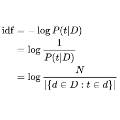Privacy and Fairness both are very important nowadays. For most of the cases in the online service providing system, users have to share their personal information with the organizations. In return, the clients not only demand a high privacy guarantee to their sensitive data but also expected to be treated fairly irrespective of their age, gender, religion, race, skin color, or other sensitive protected attributes. Our work introduces a novel architecture that is balanced among the privacy-utility-fairness trade-off. The proposed mechanism applies Group Tagging Method and Fairly Iterative Shuffling (FIS) that amplifies privacy through random shuffling and prevents linkage attack. The algorithm introduces a fair classification problem by Relation Impact based on Equalized Minimal FPR-FNR among the protected tagged group. For the count report generation, the aggregator uses TF-IDF to add noise for providing longitudinal Differential Privacy guarantee. Lastly, the mechanism boosts the utility through risk minimization function and obtain the optimal privacy-utility budget of the system. In our work, we have done a case study on gender equality in the admission system and helps to obtain a satisfying result which implies that the proposed architecture achieves the group fairness and optimal privacy-utility trade-off for both the numerical and decision making Queries.
翻译:隐私和公平是当今非常重要的。 对于在线服务提供系统中的大多数案例,用户都必须与各组织分享个人信息。 反过来,客户不仅要求对其敏感数据提供高隐私保障,而且预期会受到公平对待,而不论其年龄、性别、宗教、种族、肤色或其他敏感受保护的属性如何。 我们的工作引入了一个新颖的结构,在隐私-公用事业-公平交易之间保持平衡。 拟议的机制应用了通过随机打乱和避免联系攻击而扩大隐私的团体拖拉法和公平利用性打压(FIS ) 。 算法不仅要求对其敏感数据提供高隐私保障,而且还要求对其敏感数据提供高隐私保障。 反过来,客户要求客户不仅对其年龄、性别、宗教、种族、肤色或其他敏感受保护的受保护属性给予高隐私保障,而且期望客户会受到公平对待。 对于清点报告编制工作,隔离者利用TF-IDF增加噪音,以提供纵向差异隐私保障。 最后,这个机制通过风险最小化功能来提高效用,并获得系统的最佳隐私-利用预算。 在我们的工作中,我们进行了一项关于接受两性平等的案例研究,并且帮助获得一个满意的结果。 使得拟议的隐私权结构实现最佳的公平性和最优化的贸易。





